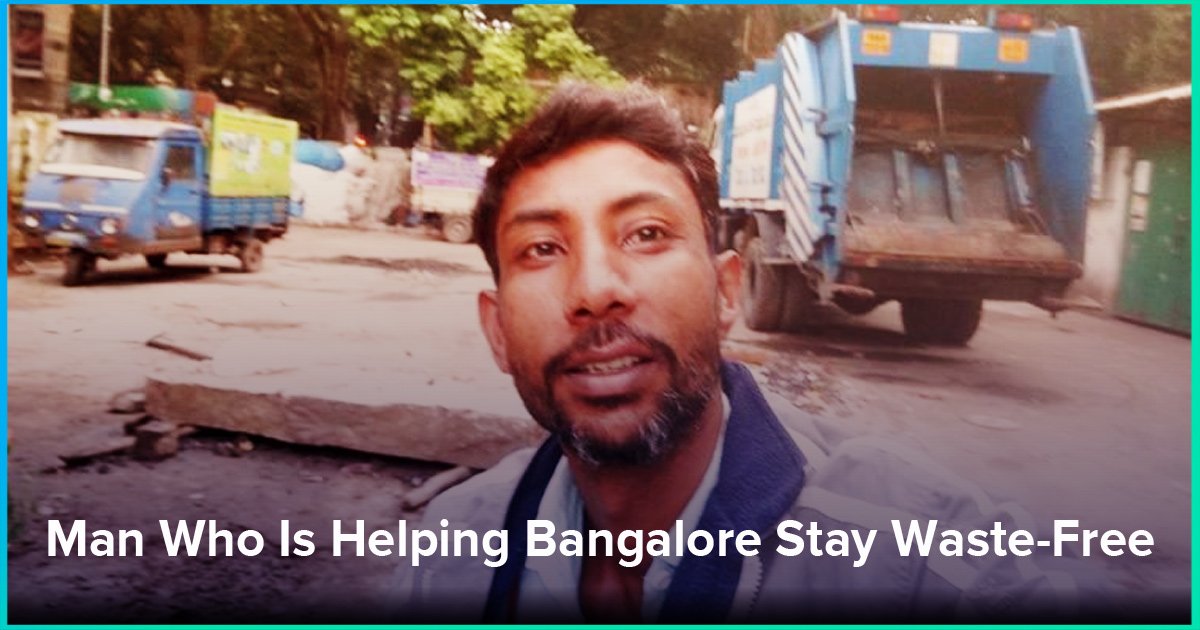He was in the fifth grade when his father passed away. A boy of thin frame and tender shoulders, Mansoor was the oldest among nine siblings and had to drop-out of school to help his widowed mother take care of the family.
Mansoor’s mother ran a small scrap shop close to home. All the waste-pickers from their slum would bring their daily collection that Mansoor was responsible for sorting, segregating and weighing. They would manage around 500 kgs of waste each day.
The mother-son duo’s slum is a community of waste-pickers. Since their shop was inside the slum, they were saved from the harassment faced by the ones located on main roads. The police would pay visits each week to collect the mandatory fee imposed on the shops. But in the slum, all the waste-pickers would stand in unity and refuse to give money to the cops who, in turn, would return empty-handed.
The family lived peacefully for many years. At one point, their shop was the sole business in the area that received scrap from all the waste-pickers. However, as people realised that even waste could generate money, small scrap shops started to mushroom. As a result, the market share of Mansoor’s shop dropped drastically. Adding to their woes were labourers who would skip coming to work and give responses such as ‘this is not a government job that we require to provide notice of leave.’
The shop is now closed.
An illiterate Mansoor, who learned all skills on the job, said in a beaming voice, “but I had to turn things around.”
Mansoor Gous
Mansoor has 20 years of experience in waste collection, segregation, and management. He has been working in Jayanagar 5th block ward 168 for more than 5 years.
An NGO changed his life
He met Soubhagya from NGO Hasiru Dala in 2013. She explained to him the benefits of receiving a BBMP issued ID card. But it was not until six months later, on the word of his friend, that Mansoor would attend a Hasiru Dala meeting.
NGO Hasiru Dala works towards bettering the lives of waste-pickers in Bangalore
The meeting provided him with an opportunity to network with other scrap dealers and NGOs including Namana Foundation, Gilgal Trust and Recycle Guru. He began to attend the meetings regularly. Through his newfound network, he received an opportunity to provide waste collection services to the Commissioner’s office in Shivajinagar. This increased both his brand visibility and his confidence.
Mansoor attended the Scrap Dealer Training Program conducted by Hasiru Dala in early 2013 where he learned about business development strategies and work etiquette to manage relationships with both labourers and customers. The greatest benefit of the certificate, he shares, is the authority of government-sanctioned legitimacy.
Meanwhile, the Dry Waste Collection Centre (DWCC) in 168 was struggling to make ends meet. The manager of operations could not maintain a clean center and frequently had trouble with the labour. So when the question came up of who should replace him, Mansoor was the ideal choice.
The DWCC opened in March 2013. The center was in a poor, run-down state. The walls were low and broken. The center suffered two robberies and Mansoor lost valuable equipment. Mansoor suspects that the robberies were intended to scare him away from doing business. But Mansoor did not give up. He built up the walls around the DWCC and installed metal grills on the roof. With the full support of Hasiru Dala behind him, Mansoor decided to stay on and work.
When Mansoor and his team complained, he was questioned, “What substantial work have your done?” This determined him further.
Donate dry waste drive
Mansoor maintains a total of 33 DWCCs. All of the workers met and decided to prove their capability.
They started a donate dry waste drive with the help of Hasiru Dala and Mindtree. The company gave them uniforms and made a mobile application for people to sign up and give away dry waste from their homes.
They started working from Vasant Gudi and gradually spread across the city.
“For two years we worked without any salary from the BBMP and did all work with help from Hasiru Dala, Mindtree and all the citizens who volunteered with us,” he said.
The drive that started from 40-50 houses had involved 850 houses with help from the community. Every morning from 7.30-8 am, they would collect dry waste once a day from different areas.
In total, Mansoor and his team of twelve collected dry waste from 2050 houses across the city including from Banashankari, Jayanagar, BTM layout, etc.
“We did the work without taking any money from people but only for one process we asked for money – Rs 10 for collecting discarded tubelights and Rs 3 for bulbs,” he said. “But the number of houses that had signed up considerably declined.”
One of the main achievements from this, Mansoor recalls, is the court order that made it mandatory for all door-to-door waste collection done by waste-pickers only.
Si…











